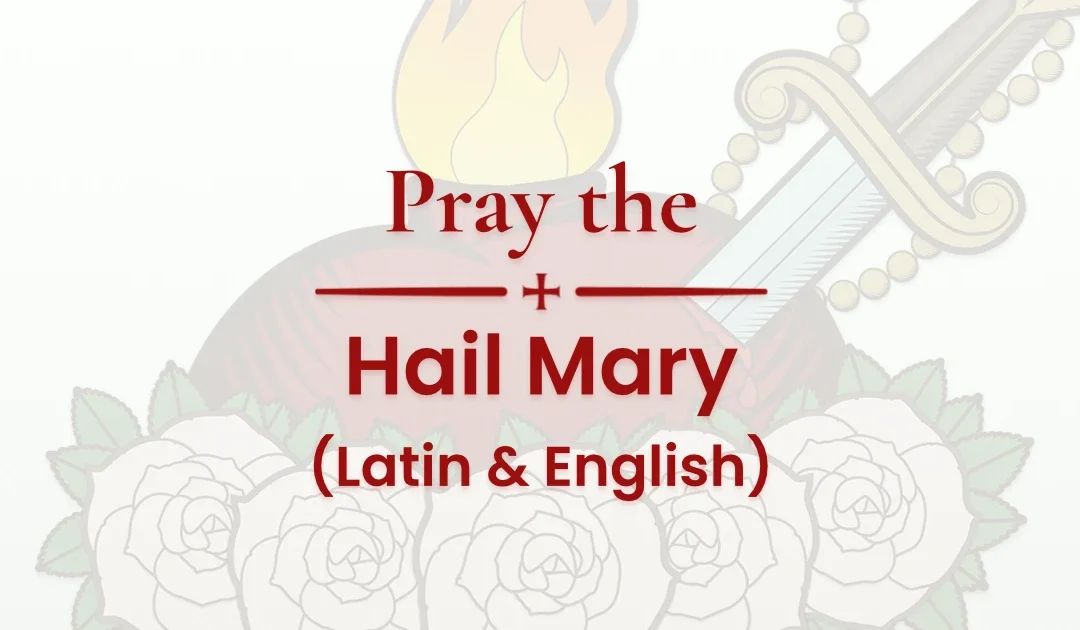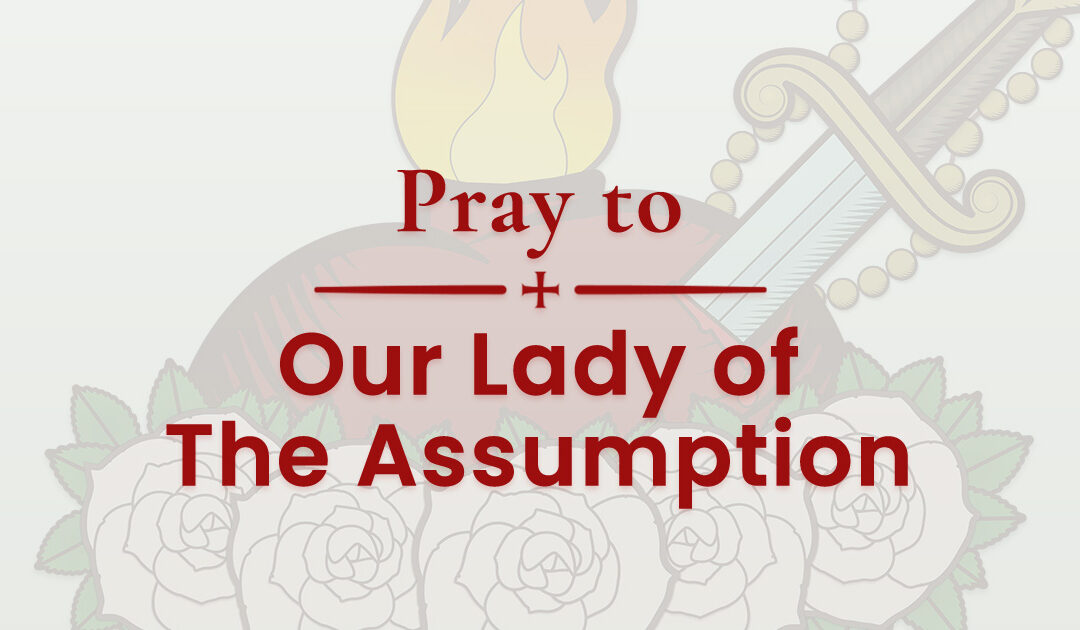In the Gospels of Matthew and Luke, Jesus himself teaches us to pray in what is often called the Lord’s prayer or the Our Father. The faithful have prayed the Our Father in Latin for centuries in imitation of Christ.
Why Latin? For one thing, it’s the official tongue of the Church. By praying in Latin, we connect to generations of other Catholics and demonstrate the unity of the one, holy, catholic, and apostolic Church.
By that same token, we should also understand what we are praying. Here we present the Our Father in Latin and English, so that we can enjoy the best of both.
The Our Father in Latin and English
| Latin | English |
| Pater Noster, | Our Father, |
| Qui es in caelis, | Who art in Heaven |
| Sanctificetur nomen tuum. | Hallowed be thy name. |
| Adveniat regnum tuum. | Thy Kingdom come. |
| Fiat voluntas tua, | Thy Will be done, |
| Sicut in caelo et in terra. | On Earth as it is in Heaven |
| Panem nostrum quotidianum da nobis hodie, | Give us this day, our daily bread. |
| Et dimitte nobis debita nostra sicut | And forgive us our trespasses, |
| Et nos dimittimus debitoribus nostris. | As we forgive those trespass against us. |
| Et ne nos inducas in tentationem, | And lead us not into temptation |
| Sed libera nos a malo. | But deliver us from evil. |
| Amen. | Amen. |
Pronouncing the Our Father in Latin
Latin can include some surprising pronunciations for native English speakers. Here are a few pointers to help you with pronunciation of the Our Father in Latin.
- The a sounds more like a short o sound in English, so pater is pronounced "paw-tair."
- The c before e, i, y, ae, oe is pronounced ch, so caelis would be pronounced like "chey-lees."
- The ae should be pronounced like the ey in hey, so caelo is pronounced "chey-lo"
- R is lightly rolled or trilled as it is in Spanish or Italian. You can hear this in the pronunciation of Regnum in the audio clip below.
- The i is pronounced like a long e, so sicut would sound like "see-coot."
You can learn more about proper Latin pronunciations here.
Translation Notes
In the previous section, we match the traditional English formula to the Latin rather than a strict word for word translation. You may notice that the English version is written in poetic form reminiscent of Shakespeare. Looking at closer translations of key phrases, you can glean some insights.
Adveniat regnum tuum.
Adveniat is a form of the word, advenio, which means to arrive. Breaking it down further, you can see two parts:
- ad (Toward)
- venio (Come)
You may also recognize its similarity to Advent, the liturgical season in which we wait in anticipation of the coming of our Lord. Each time we pray this line, we can adopt a similar posture of joyful expectation!
Fiat voluntas tua
The word fiat may be familiar to many English speakers, but they may be surprised to know that in Latin it is a verb meaning to do or make. This word is also used in the book of Genesis as translated into Latin by St. Jerome:
“dixitque Deus fiat lux et facta est lux“
Roughly translated, this sentence means, “And God said, light be made and light was made.” As we pray this line of the Pater Noster, the wording connotes the fruitfulness of God’s Will.
In a similar way, the word used for “will” has its own connotations. Voluntas often refers to free will, and it is related to our English words voluntary and volunteer.
In the context of the Pater Noster, or Our Father, it implies a total abandonment to God’s perfect Will. As such, it is a statement of complete faith and hope in God’s love.
Et dimitte nobis debita nostra.
Again, looking at this phrase English speakers will quickly pick up on debita because of its similarity to debit and debt. In fact, it means debts in Latin.
Taken literally, we could translate this line as “Dismiss our debts.” The debts in this case refer to the effects of our sins.
Sed libera nos a malo.
In the closing phrase of the Our Father, we typically pray, “But deliver us from evil.” While this translation conveys the overall meaning, it misses some of the connotations that come with the Latin word “libera.”
As you might expect, libera is a verb meaning to free or liberate, but it also can mean acquit or absolve. This wording perfectly conveys the freedom we gain from God’s forgiveness.
Like a slave or prisoner, sin traps us. It weakens our will. It dulls our thoughts. When we receive absolution in Confession or by perfect Contrition, we are released from these chains. And like the acquitted, we are unencumbered by our past.
So as you can see, the Our Father is a powerful prayer. We encourage you to make the Our Father a part of your daily prayers both in English and Latin!



